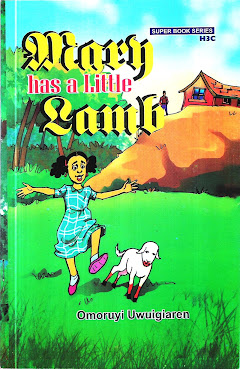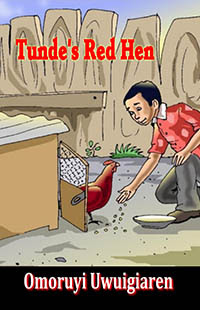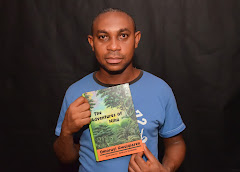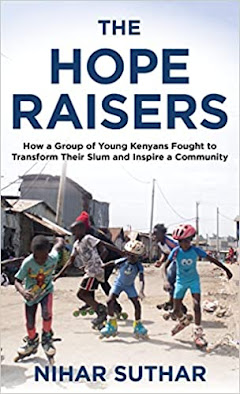As president Muhammadu Buhari continues to battle his ailment in a
London hospital, Jiti Ogunye has raised pertinent questions about what
the situation connotes.
In December 2009, we published in the
media an article titled “President Yar Adua’s Illness, the Law and the
Constitution”. In the article which appeared, in part, in Mustapha
Ogunshakin’s Gavel International, and in The Guardian newspaper, we
discussed the need to allow the dictates of the Constitution and our
laws to govern the politics of President Umaru Yar’Adua’s ill health,
which had thrown governance in Nigeria into a state of crisis at that
point in time. We then called on President Umaru Yar’Adua to resign from
office or be impeached for suppressing or misrepresenting the true
facts of his ill heath, and thus obtaining power by false pretense.
In the prevailing circumstances surrounding the illness of President
Muhammadu Buhari, his seeking of medical treatment overseas, the
non-disclosure of the facts of his ailment to the Nigerian people, and
the mismanagement of information surrounding the true state of his
health, we have found our analyses and submissions in that article very
relevant. It is our humble belief that there are lessons that our
country could learn from that intervention, and we decided that the
earlier piece be republished for our collective enlightenment.
May we clarify upfront that this article is not purposed to be a weapon
of legal disquisition in the armoury of those who are gunning for the
resignation of President Muhammadu Buhari from office. After a careful
consideration of the facts and circumstances of President Buhari’s
illness, especially because he did not lie about, or suppress
information of his state of health prior to the 2015 Presidential
Election, we are not able, at this point, to make a call for President
Buhari’s resignation from office on the ground of incapacity to perform
the functions of the office of president. The president, dutifully, has
been transmitting communication to the National Assembly, and
transferring presidential power to the vice president, as acting
president, on occasions when he has had to travel overseas for medical
treatment, in accordance with the dictates of Section 145(1) of the
Constitution of the Federal Republic of Nigeria 1999, as amended. That
section was amended in July 2010, as a fallout of President Yar’Adua’s
health related constitutional crisis, to provide in Section 145(2) that
if the president is unable or fails to transmit the letter communicating
his temporary absence from presidential power to the National Assembly
within 21 days of the occurrence of the temporary absence, the National
Assembly shall mandate the vice president to function as an acting
president.
We do not share the view that President Buhari be
harangued, blackmailed or hounded out of presidential power. But we
believe that he and his presidency owe Nigerians a duty of disclosure of
his current state of health to enable Nigerians and the Federal
Republic of Nigeria assess his health status and form a guided, frank,
honest, rational, fair and just opinion. If the disclosure does not
warrant a transfer of power, the cloud of suspense hanging over the
nation will be lifted. Nigerians will be happy to wait for the appointed
time of the arrival of the president. If the disclosure warrants a
transfer of power, however, the delicate task of doing so must be
undertaken with empathy, statesmanship and patriotism, taking into
consideration Nigeria’s geopolitics, ethno-religious diversity, and
plurality of contending political, economic and social interests.
Sobriety, consensus building, and spirit of accommodation must undergird
an arduous task like this. Unfortunately, the president has no organic,
cohesive, principled or disciplined political party that can carry out
this task. The president’s party is a bad contraption of a special
purpose vehicle for political power ascendancy and expansion of economic
territoriality. Sad. May Nigeria survive.
Following is a reproduction of the initial article:
President Yar Adua’s Illness, the Law and the Constitution
It is now almost a month since President Umaru Musa Yar’Adua was flown
out of Nigeria on Monday, November 23, 2009 for urgent medical attention
in Saudi Arabia. Upon his arrival in that country, the president was
admitted to King Faisal Specialist Hospital and Research Centre in
Jeddah. Two days after his admission, which was on Thursday the 26th of
November, the presidency, ineluctably, told the nation the nature of the
president’s ailment: pericarditis, an inflammatory condition of the
coverings of the heart. The presidency assured the nation that the
president, who was aware of the rumour of his death on Wednesday, the
25th of November, and who, naturally, was saddened by that rumour, was
receiving and responding to treatment. However, Nigerians were not told,
and up till now have not been told, when the president will complete
his medical treatment, return to Nigeria and resume his presidential
duties. The nation has since been told by the Executive Council of the
Federation [FEC] that the length of the president’s overseas treatment
and the time of his return would be determined by his team of doctors.
The nation has also learnt from media reports that causes of the
intumescent pericarditis include autoimmune disorders, chest trauma,
cancer, kidney failure, tuberculosis or drugs.
There have been
many reactions to the current state of health of the president. Some
have reasoned that there are sufficient indications that the president
can no longer, for reason of poor health, perform the functions of his
Office, and that as such he should resign. The FEC and the president’s
political party, the PDP have rejected the call for resignation. Some
have called on the president to make and transmit a written declaration
to the Senate and House of Representatives, indicating that he has
proceeded on medical vacation or that he is unable, in the prevailing
circumstances, to discharge the functions of his office, thereby paving
the way for the vice-president, Jonathan Goodluck to become the acting
president. In reaction to this call, FEC and other political interests
have said that there is no power vacuum, that the president is still
governing the country, vide telephony, from his sick bed in Saudi
Arabia, and that the vice president is in charge of the affairs of
State. The Senate, House of Representatives, PDP, the FEC, governors and
other political actors (for that is what they are) relentlessly have
been calling for national prayers. In ecumenical solidarity, Muslim and
Christian groupings have been making a public show of their fervent
prayers to God for the quick recovery of the president. While the
National Assembly has declared a “state of praying emergency”, its
PDP-led leadership has squelched spirited attempts by members of the
legislature to debate the state of health of the president and its
implications. The Senate has rejected a motion and the House has
disallowed a protest, in this regard.
It is obvious that the
reactions of most of the political actors are actuated by “ill-vested”
political interests and economic calculations. Here are some of the
considerations: If the president resigns from office, “power at the
centre” will return to the “South” and “the North” will be left high and
dry, until 2011; the First-Ladyship will be lost; Goodluck Jonathan
becomes president, many of the FEC members will lose their appointments,
and other persons holding key positions in the federal government may
not retain theirs either, based on the adherence or non-adherence to the
federal character principle; the ruling party will be weakened and
opposition parties may take advantage of this weakness; other fringe
politicians in the PDP who are victims of President Yar Adua’s ascent to
power will be opportune to secure space within the party and position
themselves for re-election in 2011. Also, the political offices zoning
arrangement within the PDP will be disrupted, occasioning the loss of
privileged positions by some current office holders, including principal
officers in the National Assembly; the certainty of Jonathan’s
vice-presidency, and thus the grip of the South-South geopolitical zone
of the country on the rudder of the Ship of State (which is seen, in
some quarters, as yielding incremental dividends of the Niger Delta
Ministry, amnesty to militants, 10 percent oil revenue equity for the
benefit of oil producing communities, et cetera) will be overtaken by
the uncertainty of a Jonathan presidency that surely will be haunted by
the fear of the unknown, arising from troubling precedents in our
nation’s history. Hence, the president must not transmit a declaration
of non-availability or inability to exercise the functions of his Office
to the National Assembly to pave way for the acting presidency of the
vice-president because of the political risk involved, and because of
the unintended consequence of such transmission validating the call of
those clamouring for the resignation of the president from office, on
the ground of incapacity. These considerations are endless.
In
this article, we intend to look at the current state of health of the
president vis-à-vis the law, and make suggestions on how to “move our
country forward”. While we do not grudge politicians and religious
leaders for looking at this subject from partisan and spiritual lenses,
we insist that this subject is, first and foremost, a matter of law and
the Constitution. The Constitution does not provide that whenever the
president is unable to discharge the functions of his office, owing to
poor health, the functionaries of State should exact prayers from the
nation. The Holy Bible or Holy Quran may enjoin us to pray for the sick,
but Nigeria is governed in accordance with the provisions of the
Constitution, and not in consonance with Biblical or Quranic verses. We
do not wish the president dead. We acknowledge that, at fifty-eight
years, he is not an old man. His mother, who was bereaved when her son
and the president’s brother, Shehu Musa Yar’Adua, was “murdered” in
1997, during the pernicious reign of General Abacha, late military Head
of State of Nigeria, is still very much alive. No right thinking person
would want to see the old woman bereaved again. The president also has a
family, including his wife, who is entitled to his continued existence.
Above all, the president has a life, and a right, like everybody else,
to prolong that life by all medical means possible.
In this land
and under this “democracy”, we are not forbidden by law to deliberate on
the state of health, good or ill, of the president. On the contrary, we
are, by implication, required by the law and the Constitution to
thoroughly examine the state of health of any person that aspires to
hold the highest public office in the land, during an electioneering
campaign, in order to determine the physical and mental fitness of that
person to occupy the office of the president of our country. We are also
expected by the Constitution, after an election, to continue to
scrutinise the state of health of the president. Why this is so is not
only because the Constitution makes good health a factor in the election
of a president and in his continuance in office, after election, until
the end of his term of office, but also because the burden of duty of
the office of the president needs a healthy shoulder to rest on, and a
sound mind to lighten the weight of that burden. We, therefore, will not
shy away from discussing the current state of health of the president
and its implications for our constitutional democracy and the rule of
law.
The job of the president of Nigeria is full time. It is not a
part-time political appointment. Section(S) 138 of the Constitution
provides that “the President shall not, during his tenure of office,
hold any other executive office or paid employment in any capacity
whatsoever”. Maintaining and preserving the dignity of the high office
of the president is the rationale of this provision. But it is clear
also that the Section is an indication of the all-consuming nature of
the job of the president. This being so, it can be said that the
Constitution expects any person who wants to be president to be as fit
as a fiddle to do the job.
S.137(1)(c) of the Constitution
provides that “a person shall not be qualified for election if, under
the law in any part of Nigeria, he is adjudged to be a lunatic or
otherwise declared to be of unsound mind”.
It is our considered
opinion that for a person to be disqualified from election to the office
of the president, under the Section, his state of mental health must
have been pronounced upon, by a judicial or a quasi-judicial body, which
can only adjudge or declare, under a lunacy law. A medical report that a
person is a lunatic or a medical certification that a person is
undergoing a psychiatric treatment is not constitutionally sufficient to
disqualify that person from contesting for the office of the president.
In Action Congress v. INEC, 2007, 12 NWLR, (Pt. 10480), 222, the
Supreme Court of Nigeria interpreted the provisions of Section 137 (1)
of the Constitution of the Federal Republic of Nigeria, 1999; Paragraph
15 of the Third Schedule to the Constitution, which lists the powers of
INEC; Section 32 (4, 5, & 6) of the Electoral Act, 2006; and Section
6(6) (a & b) of the Constitution, which grants the judiciary
exclusive power to determine all disputes between authorities and
persons, and determine all actions and proceedings relating to the civil
rights and obligations of the person. It should be noted that under
Section 137 (1) (c) of the Constitution, “a person stands disqualified
from contesting election to the office of President if under the law in
any part of Nigeria he is adjudged to be a lunatic or otherwise declared
to be of unsound mind.”
By the decision of the Supreme Court at
Pp.259.paras D-E; 265, paras.F-G; Pp257-258, paras.F-C; 265-256,
paras.H-A; 271-272, paras. G-E; 282-283, paras. G-E; 305, paras. A-G;
316-317, paras H-F; Pp. 262, paras. A-D; 272-273, paras. H-B; 276,
paras. B-C; and 285, paras B-D, it is clear that a judgment of lunacy or
a medical declaration of unsoundness of mind will not, by itself,
disqualify a person from contesting for the office of president. INEC
cannot suo motu (that is, on its own) disqualify any candidate for
reason of being adjudged a lunatic or for being declared to be of
unsound mind, even if the person was the one that submitted a document
to this effect to INEC. It is only a court of law that can act on the
judgment of lunacy or a declaration that a candidate is of unsound mind,
to disqualify the candidate. If an adjudged lunatic puts himself up for
election and there is no court action or order to have him disqualified
from participating in the election, INEC is duty bound to present him
to the electorate to be voted for. This is the wisdom of the Supreme
Court’s judgment!
While S.137(1)(c) of the Constitution makes
soundness of mind a condition for qualification for election to the
office of president, there is no analogous provision in the Section
which makes physical fitness or soundness of the body a condition for
qualification for election to the office of the president. This point is
important because, as it shall be revealed below, permanent incapacity
of a president disentitling him to continue to govern has two legs:
infirmity of body or mind. Does it then mean that a person who has a
sound mind, but whose health is seriously impaired or who is terminally
ill is encouraged to seek election as president, or is the Constitution
relying on the political and democratic judgment of the electorate to
determine the suitability of such a person for election as president? Is
it out of sensitivity to the situation of physically challenged
persons, who, medically, may be categorised as “infirm in body”, but not
“infirm in mind”, which made the framers of the Constitution to refrain
from making soundness of body “a condition for qualification to contest
a presidential election; or is it because of the difficulty in agreeing
to a comprehensive list of ailments that could be said to pose a
serious threat to life or is categorised as causing infirmity of the
body? For example, can cancer, leukemia, nervous disorder, epilepsy,
renal problem, liver disease, hypertension, hypotension, stroke,
Parkinson disease, tuberculosis, hepatitis, HIV/AIDS, and diabetes be
categorised as infirmity of the body; and if they could be so
categorised, should any of these health situations bar a person from
contesting for the office of the president?
Although we do not
have answers to all the posers above, we can, at least, declare that the
Constitution does not encourage a person whose health is seriously
impaired or who is terminally ill to seek to occupy the office of the
president. It cannot be the intendment of the framers of of the
Constitution that such a person, whose existence, medically, is not
assured for a year, for example, should participate in an election to
the office of the president, the term of which is four years, thereby
standing the chance of being elected to such an office.
S. 8 of
the Labour Act, Cap 11, Vol. 8, Laws of the Federation of Nigeria, 2004,
requires that every worker who enters into a contract shall be
medically examined by a registered medical practitioner at the expense
of the employer. S.91 of the Act – the interpretation section – which,
within the meaning of the Act, defines who a worker is, excludes persons
exercising administrative, executive, technical or professional
functions as public officers or otherwise, from the definition of
“worker”. The Public Service Rules, however, provides for public
servants. Rule 09103 in Chapter 9 of the Rules stipulates that:
“Every person selected for appointment either in a temporary or in a
permanent capacity shall be required to present himself for examination
to a Government Medical Practitioner (or one so approved by Government)
with a view to its being ascertained whether he is physically fit for
service…if the candidate is not finally passed as physically fit for
service, his appointment shall not be proceeded with.”
Rule 09104 stipulates further that:
“The Permanent Secretary/Head of Extra-Ministerial Department may at
any time (and shall, if the officer so requests) call upon an officer to
present himself for examination to an approved or Government medical
practitioner, or to a duly constituted medical board with a view to its
being ascertained whether the officer is physically capable of
performing the duties of his appointment to which it may be proposed to
transfer him.”
Rule 09207(a) says that:
“Approval for
journeys outside Nigeria for medical treatment will only be given by the
office of the Head of Service on the recommendation of the Permanent
Secretary, Fed. Min. of Health, and will be confined to serious cases
where a patient life is in danger or where the examination is necessary
for diagnosis of difficult cases or to ensure that a patient is fully
recovered and able to undertake the duties of his office…”
Instructively, Rule 01001 in Chapter 1 of the Rules provides that in so
far as the holder of the office of the president, among others, is
concerned, the Rules apply only to the extent that they are not
inconsistent with the provisions of the Constitution, in so far as his
conditions of service and any other law applicable to him is concerned.
Happily, no constitutional provision governs medical examination,
infirmity or incapacity of a presidential candidate or a president-elect
before assumption of office, in order to determine his/her medical
fitness to hold the office. This being so, the provision of the Rules
may well supplement the silence of the Constitution in this regard, to
morally require (in the absence of a constitutional obligation) that a
presidential candidate should disclose publicly the true state of his
health during an electioneering campaign.
The provisions of the
Labour Act and Public Service Rules, cited above, are very relevant to
our discussion. The provisions show that before the employment of every
worker and appointment of every public servant in Nigeria, a medical
examination is conducted to determine the fitness of the prospective
worker or public servant for the employment or the appointment. It is in
pursuance of these provisions that any intending member of the armed
forces, the police, customs, immigration or any of the other law
enforcement or security agencies is required to undergo a compulsory
medical test. The president is the number one public servant in Nigeria
and also the commander-in-chief of the armed forces. A prospective
holder of the office of the president ought, therefore, in our humble
view, to undergo a medical examination to determine his mental and
physical fitness to occupy the office, and to publicly disclose the
result of the examination. If the prospective holder has been undergoing
a continuous medical examination or treatment, he has a duty also to
publicly disclose this fact and the nature of his ailment. This is the
only way the electorate will be availed of the opportunity to
politically determine his fitness to occupy the office to which he seeks
election. We believe that this is the reason Senator John McCain, the
Republican candidate in the 2008 presidential election in the United
States of America, released his medical records of over 22 years for
public scrutiny. If a candidate suppresses information or gives
misleading information regarding the state of his health or ill health
and is elected the president, then his election will be vitiated by
fraud, deceit, false pretences or misrepresentation. Just as a contract
can, in law, be vitiated by fraud, deceit or misrepresentation, and
voided on that basis, the tenure of such a president in office can be
halted by the electorate, through their elected representatives. Even if
the elected representatives of the electorate decide not to make an
issue out of the nondisclosure or misrepresentation, they have a
legislative duty to take a hard look at the critical health state of a
sitting president, as it is.
S.144 of the Constitution provides extensively as follows:
“(1) the President or Vice President (VP) shall cease to hold office,
if- (a) by a resolution passed by two-thirds majority of all the members
of the executive council of the Federation, it is declared that the
President or VP is incapable of discharging the functions of his office;
and (b) the declaration is verified, after such medical examination as
may be necessary, by a medical panel established under Subsection 4 of
this Section in its report to the President of the Senate and the
Speaker of the House of Representatives; (2) where the medical panel
certifies in the report that in its opinion the President or VP is
suffering from such infirmity of body or mind as renders him permanently
incapable of discharging the functions of his office, a notice thereof
signed by the President of the Senate and the Speaker of the House of
Representatives shall be published in the Official Gazette of the
Government of the Federation; (3) The President or VP shall cease to
hold office as from the date of publication of the notice of the medical
report pursuant to Subsection 2 of this Section; (4) the medical panel
to which this Section relates shall be appointed by the President of the
Senate, and shall comprise five medical practitioners in Nigeria- (a)
one of whom shall be the personal physician of the holder of the office
concerned; and (b) four other medical practitioners who have, in the
opinion of the President of the Senate, attained a high degree of
eminence in the field of medicine relative to the nature of the
examination to be conducted in accordance with the foregoing provisions;
(5) In this Section, the reference to “executive council of the
Federation” is a reference to the body of Ministers of the Government of
the Federation, howsoever called, established by the President and
charged with such responsibilities for the functions of Government as
the President may direct.”
From the wordings of S.144 of the
Constitution, it is clear that those who are constitutionally empowered
to flag off the removal of the president or VP on the ground of
incapacity to discharge the functions of his office are members of the
Council, brought into the executive branch of government by the
president and VP, and who, presumably, are loyal to either or both of
them. To this extent, it can be seen that, except the members of the
Council are patriotic, they are unlikely, owing to selfish political
reasons, to declare that the president or VP is incapable of performing
the functions of his office, even when the president or VP is glaringly
in such a state of incapacity. Obviously, before the National Assembly
(NA) can exercise its powers under the Section, the Federal Executive
Council must have acted. Does it then mean that if a president or VP is
in a state of undeclared but apparent incapacity, nothing can be done by
the legislative and judicial arms of government? Our answer to this
question is No. If the Council decides not to act, a court of law may
compel them to perform their public and constitutional duty, in an
action, instituted by a Nigerian that is clothed with the requisite
locus standi. The NA, acting together or separately as Senate and House
of Representatives, could pass a resolution mandating the Council to
act. If the Council does not have a preliminary medical foundation to
act upon, owing to the refusal of the president or VP to grant access to
his medical records, to enable the Council act appropriately, the NA
could pass a resolution mandating the president or VP to make
disclosures, regarding the state of his health. If the president or VP
defies the resolution, the defiance could be regarded and treated as an
impeachable offence or an act of gross misconduct, depending on the
balance of political forces in the NA. The NA, which has power, under S.
4(2) of the Constitution, to make laws for the peace, order and good
government of the Federation, has general powers to take these oversight
or check and balances measures that we have proposed.
Candidly
speaking, S.144 is problematic. The removal of a President or VP from
office on the ground of permanent incapacity suffers from a lack of
definition of what may constitute a permanent incapacity. If a sitting
President or VP goes blind, or becomes deaf, dumb or crippled due to an
accident (President Kuffor of Ghana was involved in an automobile
accident while he was in power) for example, does that constitute a
permanent incapacity, as to render him unfit to discharge the functions
of his office? Even if a certified medical report, required by the
Constitution, says so, is such certification closed to argumentation or
objection? On the other hand, can’t a sitting President or VP that
suffers a devastating stroke, which though may not be a permanent
incapacity, but which, all the same, will take the President or VP
almost half of a whole term of four (4) years to recover from, be
removed from office on the ground of temporary incapacity, even when
such a temporary incapacity is not a ground for removal, specified in
the constitution? Shouldn’t the indisposition or unavailability that
would constitute a permanent incapacity under S.144 be determined also
within the context of a four-year tenure of a president, rather than in
relation to the indeterminate and usually indeterminable life-span of a
president? Can a blind or deaf and dumb aspirant or contestant to the
office of the President or VP be disqualified from so contesting because
of the status of his disability, in the face of international norms and
standards protecting the rights of those with disabilities? Why would
S.57 of the Electoral Act, 2006 specially recognize the right of those
with disabilities to vote, if this category of persons has no right to
be elected, to the highest office in the land?
There is no doubt
any longer that President Yar Adua is very sick and that he was very
sick when he sought for and was elected to the Office of the President.
From all available facts, this illness is not a sudden, isolated
indisposition, but a continuation of an ailment that the President has
been living with, but which the President has refused to fully disclose.
As we will demonstrate below, the latest disclosure that the President
is suffering from acute pericarditis is another carefully measured piece
of information about the President’s health, and not the total picture
of his ailment. Circumstances compelled the release of that piece of
information; otherwise, mum would have been the word. In case anyone
wants to challenge our assertion that the President’s ailment is very
serious, we make bold to say that the fact that the President has been
frequenting overseas for medicare, shunning the best that medical
science could offer in Nigeria, is an undeniable proof that his ailment
is serious. And this assertion of seriousness of the President’s ailment
is not premised on the “kidney problem” the President once admitted
that he had, nor based on the liver and Chung Strauss Syndrome diseases
the President reportedly has, but which he has not confirmed, or on the
now disclosed pericarditis. No. We derive further proof of the
seriousness of the President’s ailment from what the law says.
As
noted above, Rule 09207(a) of the Public Service Rules says that
“approval for journeys outside Nigeria for medical treatment will only
be given by…and will be confined to serious cases where a patient life
is in danger or where the examination is necessary for diagnosis of
difficult cases or to ensure that a patient is fully recovered and able
to undertake the duties of his office…”.
Thus, it is beyond equivocation that the President’s case is serious and difficult, and that the President’s life is in danger.
We now come to the all-important question of whether, in the prevailing
circumstances, the President is unable, on the ground of permanent
incapacity, to discharge the functions of his office. It has been argued
that under Section 144 of the Constitution, it is a medical panel that
has the “exclusive jurisdiction” to determine, by a certified report,
whether a president’s infirmity of body or mind has rendered him
permanently incapable of discharging the functions of his office. The
impression is, therefore, created that the question, whether a case of
permanent incapacity of a president to discharge the functions of his
office has arisen, is strictly a medical question, and not a political
or legal question.
We submit that under the Constitution, the
question of whether a case of permanent incapacity of a president to
govern has arisen is, first, a political question; for it is the FEC
that starts the process of removal of a president on the ground of ill
health, by making a declaration of incapacity. In arriving at the
declaration, the FEC, no doubt, may rely on medical reports, but the
declaration the FEC makes is not a medical opinion or judgment. It is a
political opinion, judgment or decision, and it is arrived at in
exercise of constitutional power. Being an exercise of constitutional
power, it is also a matter of law, and, therefore, a legal question. It
is after the FEC has performed its political and constitutional duty of
making a declaration of incapacity that the question becomes a medical
one, to determine whether the incapacity is of a permanent kind. This is
why the words “verify” and “certify” are used in Section 144, for the
job of the medical panel is to verify and certify or refuse to verify
and certify a case of permanent incapacity that has already been
declared by FEC. The point we are underscoring is that under the
provisions of Section 144, there is no prescription that declaration of
incapacity by the FEC must be predicated on a medical evidence or
report. How it may occur to the FEC that a case of incapacity has arisen
to warrant a declaration to that effect being made is left open. Now,
if the Constitution does not stipulate that the FEC must base its
declaration of incapacity of a president to discharge the functions of
his office on medical evidence, why is it being suggested by the
National Assembly that Nigerians need to await a medical report, that
may never come, before reaching a conclusion that a case of permanent
incapacity has arisen?
It is our considered view that on the
basis of available facts, President Yar Adua is incapable of discharging
the functions of his office. What are some of these facts? Inexplicable
absence from the last UN Summit; inability to present the 2010 budget
before both Houses of the National Assembly and converting same into an
epistolary exercise; embarking on regular and costly medical trips
overseas to take care of his health, thereby distracting the business of
government; inability to preside over the weekly FEC and other
statutory meetings, et cetera. Whether this incapacity is of a temporary
or permanent type may yet have to be medically ascertained, by
verification or certification, but it is glaring that there exists a
case of incapacity, arising from infirmity of the body, warranting the
FEC to make a declaration of incapacity. This obvious incapacity also
should have made the President to transmit, before now, to the President
of the Senate and the Speaker of the House of Representatives a written
declaration that he was proceeding on medical vacation and that he is
otherwise unable to discharge the functions of his office, so that the
Vice President can function as Acting President, in his absence, as
provided under Section 145 of the Constitution. The refusal of the
President to make this transmission is a breach of a clear
constitutional provision, punishable legislatively by an impeachment
proceeding; and also a refusal to perform a constitutional and public
duty judicially correctable by an order of mandamus, pursuant to the
power of judicial review of administrative and executive acts vested in
our courts of law.
It is our humble but firm opinion that
President Yar’Adua should immediately resign from office, not so much
for reason of his obvious incapacity that is yet to be declared or for
reason of his believed permanent incapacity that is yet to be verified
or certified by a medical panel, but for obtaining, wielding and
retaining political power by false pretences. The act of misconduct
committed by the President is a political variant of the offence created
by Section 419 of the Criminal Code Act: obtaining property by false
pretences. It is politically indefensible and morally reprehensible.
To those who are moralizing the issue of the call for the resignation
of the President, we say that this President cannot play the victim or
blackmail Nigerians into sheepish silence. Nigerians have the right to
hold opinions and the right to freely express their views; and they
cannot be crucified for exercising this right. Our President has
obtained presidential power by a grand deception, and we have the right
to demand a resignation even on that score alone.
Before the
April 2007 presidential election, the President, then the PDP candidate,
did not disclose to Nigerians that he had any health problems or
chronic ailment, even when reports of his ill-health were very rife.
When he suddenly took ill during the campaigns and was flown to Germany,
what Nigerians were told then was that the President had cold, carrtarh
or flu . Of course there was a rumour that he had died, a rumour that
was so pervasive that during the PDP rally at the MKO Abiola Stadium
Abeokuta, his consummate mentor and campaign manager, President Olusegun
Obasanjo had to make him speak to the rally and millions of television
viewers locally and internationally to assure all that all was well. To
further convince skeptics that all was well, candidate Yar Adua’s return
to the country, vide MM International Airport, Lagos, and his departure
to the Ado Ekiti Rally of the PDP, vide a presidential chopper, had to
be relayed on the network service of NTA and AIT. Candidate Yar Adua had
an opportunity then to disclose that he once had a kidney or other
health problems, but he covered up. He could have done what John McCain
later did in the last US presidential election when he turned over his
22 year medical records to the American public for scrutiny, to prove
beyond doubt that, at 71 and as the oldest presidential candidate in US
history, he was cancer free. But Candidate Yar Adua chose not to do
that.
When the President again took ill in the first half of
2008, the official line was that his medical trip to Germany was
necessitated by “malaria and allergic reaction to the use of drug, which
resulted in a swollen face”. Again, there was a widespread rumour that
the president had passed on. In the presidential media chat the
President held on May 29, 2008, to commemorate one year of his
administration in office, the President reacted to the rumour of his
death by casually and belatedly disclosing that he had “kidney problems
in 2000”. That disclosure was one he had an ample opportunity to make
when he was gunning for the presidency, but which he refused to make.
And when that disclosure was tersely made on May, 29, 2008, the
President gave no expatiation on the nature or stage of the “kidney
problem”: whether it was kidney infection or a case of renal failure.
The President did not say whether that problem was solved in that year
or later, or whether the problem persists till today. We do not know
whether our President has had a kidney transplant, and if so when he had
one. We did not know whether there were other health situations apart
from the kidney problem. Rather than speak specifically and honestly
about his state of health, the President chose to lecture Nigerians,
once more, on the ordinariness of man, in or out of political power;
human mortality and the inevitability and uncertainty of death.
In that chat, the President, who stated that he had been visiting a
German hospital for twenty years for medical check-up, invited Nigerians
to believe him that he did not have any serious ailment and that he was
not going to die soon as being speculated by those who were playing
God. The President even publicly challenged any person who wanted to
test the vibrancy or otherwise of his health to a game of squash, which
being a grueling sport of physical exertion, would clear any doubt that
he was a sick man.
In our reaction to the presidential chat,
published in the media, we had reasoned that if the president had to go
to Germany to treat cold, malaria and allergic reaction, which from the
reasonable man’s point of view, do not rank as serious cases of ill
health that could put the life of anybody in danger to warrant traveling
overseas to seek medical help, then there was more to the president’s
trip than he was ready to admit, wondering whether it would not be right
to suggest that those mild illnesses could be opportunistic ailments
that resulted from a more severe and fundamental health situation. Going
further we stated that “the President has a moral, political and
constitutional duty to make a comprehensive disclosure of the state of
his health, so as to put these rumours to rest. During the elections, he
suppressed information regarding his state of health. The President,
the first Nigerian leader to publicly declare his assets upon assumption
of office, should follow that act of transparency by publishing his
health records. The President’s refusal to fully disclose the state of
his health cannot but impel Nigerians to worry about his capacity to
continue to discharge the functions of his office and further fuel the
rumour about his health, to which he objects.. The way the President is
trivializing this issue does not give us any hope that the rumour about
the President’s health will die. And the rumour won’t die because the
President was elected to be in office for four years. So, if very early
into the President’s tenure, there are indications that the President is
frail in health, there will be serious concern, if not panic, because
of the geo-political, constitutional and security implications of any
incapacity to discharge functions of the office, or death. No electorate
will put in power a president that is likely to be incapacitated to
discharge the functions of his office; nor will they wish to see him die
soon after election…. Chief Gani Fawehinmi has just disclosed his state
of health. Professor Olikoye Ransome Kuti, disclosed, even when he
could have kept quiet, that his brother, Fela, died of AIDS, to the
anger and consternation of Fela’s devotees and admirers. Nelson Mandela,
in grief, told a shocked world that his son died of AIDS. Why can’t our
President disclose fully the state of his health?”
Again, when
the President took ill in August this year, and he had to go for urgent
medical treatment in Saudi Arabia, the alibi that was sold to the nation
was that the President went for the lesser hajj. When the lesser hajj
graduated to a bigger hajj, and the President did not return, the nation
was then told that the President checked into a hospital after the
lesser hajj to see his doctors.
It is against this backdrop of
serial non-disclosures, inexactitudes and deliberate misrepresentations
on the true state of health of the president that any reasonable person
is likely to view this latest report on the President’s ailment as
another choreographed canard. Illness is no crime. A compatriot who is
ill deserves our love, care, affection, support and prayers. But a
president that deceives Nigerians into electing him into office by
falsely claiming that he enjoys a robust health, when he does not,
commits an act of gross misconduct that devalues, diminishes and demeans
the presidency. And such a president deserves an appropriate political
punishment, regardless of the precariousness of his state of health. The
electorate reserves the right to punish him for making a false claim on
the state of his health, by removing him from office or by forcing him
to resign his office, even as they pray for him to get well. The
president’s father was a 1st Republic Minister, and the brother was a
deputy head of state in a military government. The president, himself,
was a State governor for eight years; and now he has been the president
for over two years. Allah, the merciful, has blessed the President and
his family; and in obedience to the national call for prayers, we
beseech Allah to continue to bless him as he voluntarily leaves office
or is unwillingly but constitutionally removed from the high office of
the president, which he obtained by false pretense.
***
Jiti Ogunye, lawyer, public interest attorney, legal commentator, author, and essayist, is the Legal adviser of PREMIUM TIMES.
Facebook




















































.jpg)
































































No comments:
Post a Comment